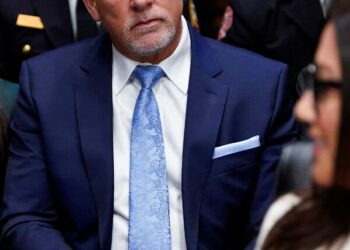The disturbing revelation is contained in the data compiled by the Manufacturers Association of Nigeria (MAN), the foremost umbrella body for manufactures in the country.
“How many companies in our sector are still in operation? Wempco has shut down; WAHUM is struggling, and the rest are just there.
When we come for meetings, we will not be more than 11,” said Qualitek Industries Chairman Oluyinka Kufile, a major player in the aluminum and steel sector, according to TheNiche.
Kufile blamed a combination of bad government policies, arguing that Nigeria is yet to understand its true direction in economic diversification.
The economy witnessed two recessions between 2016 and 2021. One caused by a foreign exchange (forex) problems, the other by the pandemic.
Economic and financial analysts say federal and state governments have responded poorly to the challenges in the economy.
Investors skeptical
Lagos Chamber of Commerce and Industry (LCCI) Deputy President Gabriel Idahosa said investment is often driven by policy certainty and the major factors scaring investors are forex market unpredictability and naira devaluation.
He explained that foreign investors are skeptical about investing in Nigeria because the value of their returns would decline in the future due to naira devaluation, via reporting by The PUNCH.
Market analyst Ike Ibeabuchi added that the Central Bank of Nigeria (CBN) is getting the whole blame because the fiscal side is doing little.
“The investment drop is not only caused by foreign exchange, but also by weak policies. The CBN has got it wrong in some areas, but what are the finance minister, the investment minister, security operatives, state Governors and other stakeholders doing to make Nigeria an attractive investment hub?” he asked.
Rising borrowing cost
Global headwinds such as COVID and Russia’s invasion of Ukraine have not helped matters, having induced raw materials scarcity from wheat to oil, and pushed the CBN to raise benchmark interest rate from 11.5 to 14 per cent in three months.
ALSO READ:Rising Debt Pushes Nigeria Up To Fourth On World Bank Debtors’ List
MAN said in an email to The PUNCH that rising borrowing cost would “lead to rising cost of manufacturing inputs, which will naturally translate to higher prices of goods, low sales and enormous volume of inventory of unsold products.
“It will exacerbate the intensity of idle capital assets, worsen the already declining profit margin of private businesses, heighten the mortality rate of small businesses, hurt capacity utilisation, and upscale the rate of unemployment.
“Manufacturers are hopeful that the stringent conditionalities for accessing available development funding windows with the CBN will be relaxed to improve the flow of long-term loans to the manufacturing sector at single digit interest rate.”









